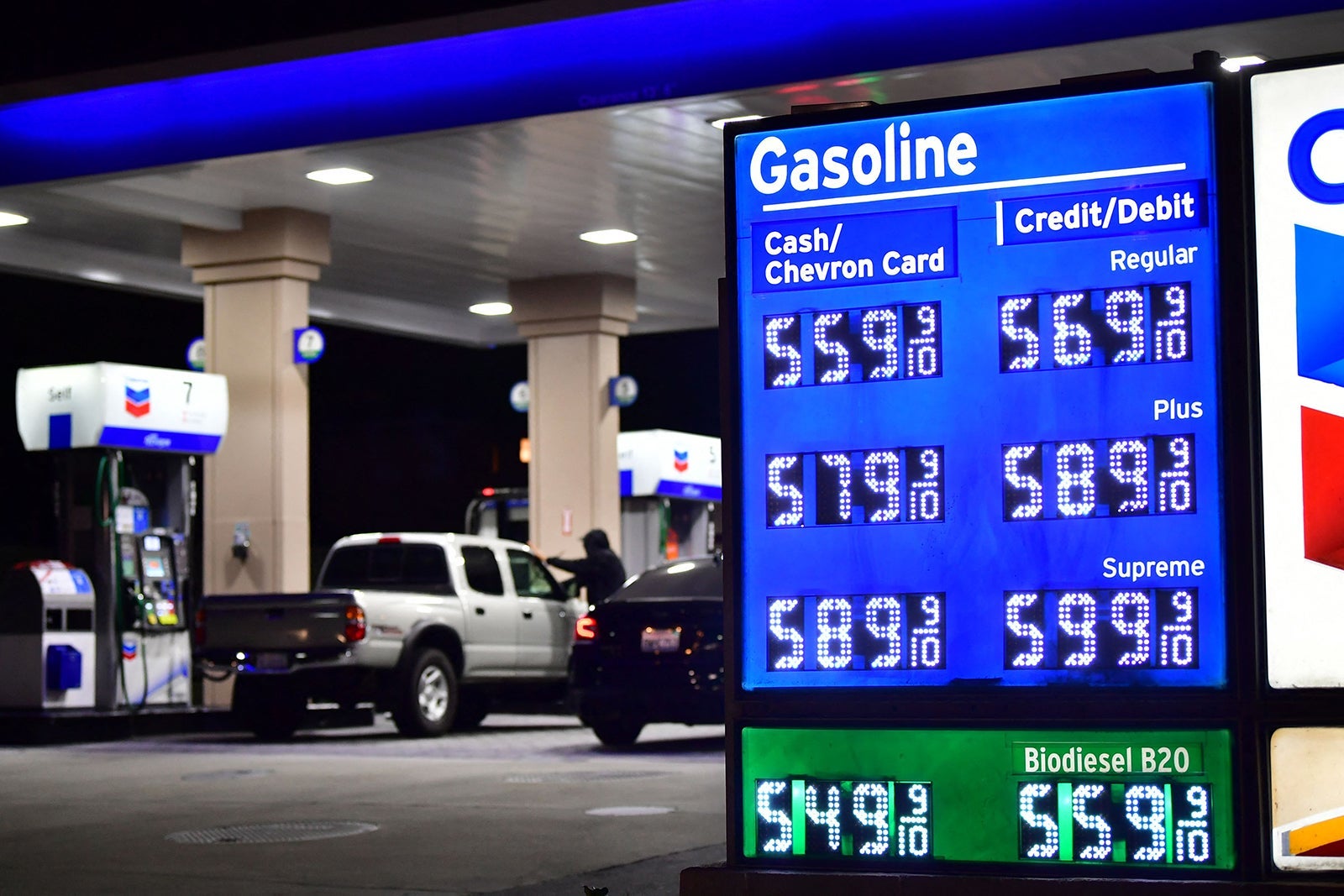Can a merchant charge a fee for paying by credit card? Here’s what you should know
Editor's Note
Have you ever had that surprise moment at a cash register where you've pulled out your credit card, ready to pay, and then the cashier announces there is an extra fee for paying with a credit card?
People have varying reactions to this experience. One reaction may be wondering whether this fee is legal or whether the payment processing network allows these fees.
In this guide, we'll walk through the types of fees you may encounter with credit card payments — and their legality.
Types of credit card fees charged by merchants
U.S. merchants won the right to start charging fees on credit card payments in January 2013. This came after a class-action lawsuit by merchants who wanted to charge fees to compensate for increasing credit card processing fees.

In order to understand the fees, why merchants charge them and when they apply, you should first understand a few terms. You may see these fees referred to as "interchange fees," "swipe fees" or "credit card processing fees." All of these terms refer to the same thing: the fee that a business incurs when accepting credit card payments, which must be remitted to the credit card processing network. What's a credit card processing network? Think Visa or American Express — the actual network that processes the credit card transaction.
It's also important to note that we are only talking about fees on credit card transactions. These fees do not apply to transactions using debit or prepaid debit cards — even if those cards are backed by a credit card network like Visa or Mastercard. When transactions are processed as "debit," adding fees is prohibited by the card issuers and is illegal throughout the U.S. Fees related to these transactions are controlled due to the Durbin Amendment of 2011.
Related: What's the difference between a credit card network and issuer?
Processing fees
A merchant incurs processing fees when accepting credit card payments. These fees (and the fact they continue to increase over time) provided the catalyst for the lawsuit we mentioned.
Credit card processing fees are around 2% of a transaction. On a $1,000 purchase, the business must pay $20 to the payment processing network for the card used by the customer. Note that 2% is the average, and fees incurred on transactions using American Express and Discover cards tend to be the highest. Despite having higher fees on certain cards, merchants are not allowed to encourage customers to use certain credit cards at the expense of competing credit cards. A business must either accept or not accept cards from a particular issuer without telling clients that certain cards are preferred.


These interchange fees add up, so businesses looking to reduce costs and save money want to avoid these fees on credit card transactions. That's because the fees can eat into the company's profits. One way to avoid losing money on these fees is not accepting credit card payments. Another option for businesses is levying a fee when customers pay by credit card.
Credit card surcharges
To be clear, credit card surcharges are an optional fee that businesses can choose to add to transactions when customers pay by credit card. Merchants are not required to charge you a fee for paying by credit card. Visa recommends merchants consider what impact this might have on customers and what competing businesses are doing before charging these fees.
Credit card surcharges are legal in the U.S., except in states which prohibit them (more on that below). If a business chooses to add a credit card payment surcharge, it must clearly disclose the fee before you pay as a separate line item on the receipt. Additionally, both Visa and Mastercard require businesses charging these fees to provide notice at least 30 days in advance of implementing a credit card processing fee for customers. Businesses levying these fees must also post a written notice at the point of sale to alert customers.

Credit card surcharges can come in two forms:
- Brand fees: This is a fee specific to certain credit card processing networks, such as charging a fee only when a customer pays with an American Express card.
- Product fees: This fee relates to certain types of credit cards, such as Visa Signature or World Elite Mastercard.
A merchant can add either type of surcharge but not both. Additionally, the maximum surcharge is 4% of the transaction amount or the cost of accepting that credit card as a payment method — whichever is lower. That's even if the final cost of accepting this particular credit card for this particular transaction winds up costing the business more than the fee amount.
Credit card convenience fees
Card issuers and payment processing networks have varying policies on credit card fees:
- American Express: Merchants can add fees to cover administrative costs, provided they communicate these fees to the customer before payment.
- Discover: Merchants cannot charge convenience fees to Discover cardholders unless the merchant charges the same fee to all credit card holders from all card issuers.
- Mastercard: Only certain government agencies and educational institutions can charge these fees.
- Visa: Merchants can add fees to nonstandard payment methods, except in states that prohibit this fee on income taxes.
There are also other convenience fees that businesses can charge, which are not necessarily related to paying by credit card. A perfect example is a fee for paying outside the normal payment method a business typically accepts. We see this with airlines that charge a phone center booking fee. The standard method of payment for the airline is via the website, so paying in a different channel may incur a fee.

It's important to note that none of these fees can be assessed unless another payment method is available without a fee. This may be cash, debit card, check — or buying your ticket on the website in the airline example.
Related: How do credit cards work?
Minimum purchase requirements for credit card transactions
Because of the fees associated with credit card transactions, another option for businesses is requiring a minimum purchase amount for credit card transactions. This option avoids upsetting customers with an additional fee but allows the business to not accept credit cards on smaller transactions. This is because businesses may see it as "not worth it" to pay the fee for accepting credit cards on smaller transactions.

If a business sets a minimum purchase amount for using a credit card, disclosing this minimum in advance is not required. However, state regulatory agencies and credit card processing networks encourage businesses to do so.
Moreover, the minimum transaction amount must be under $10, and most businesses cannot set a maximum transaction amount. The exceptions are federal agencies and higher education institutions, which are permitted to establish transaction maximums.
This applies only in the U.S. and U.S. territories, however. In other countries, setting minimum purchase amounts is not permitted.
Related: Credit card economics: A look at the fees that you rarely see
States that prohibit these fees
Some states legally prohibit these fees. Currently, credit card surcharges are illegal in Connecticut, Florida, Kansas, Maine, Massachusetts, New Jersey, New York, Oklahoma and Texas (with exceptions).

That's not to say that other states don't have similar laws. However, several of these have been declared unconstitutional by federal courts. Similar laws have been challenged, and states have stopped enforcing them to avoid protracted legal battles.
Offering discounts when paying by other methods
Every U.S. state allows businesses to offer discounts when customers pay by methods that don't incur fees for the business. This includes cash and checks.
You have likely seen this in practice at gas stations. The sign outside displaying the fuel price may include one price for those paying with cash and another (higher) price for those paying by credit card.

In every state, merchants must clearly display the discount in advance. Additionally, there is a limit on the discount amount: 5% in most states.
Related: Beat high gas prices while traveling during the holidays: 8 ways to save at the pump
What to do if you encounter an illegal or exorbitant credit card payment fee
If you encounter a fee that you believe is illegal — because it was not fairly disclosed, it seems exorbitant or the business is not allowed to charge it — what should you do?

You can notify the card payment processing network so that it can investigate. Additionally, you can file a complaint with the relevant state's attorney general to investigate whether a merchant is violating laws or consumers' rights.
Related: Should I pay with a rewards credit card even if it incurs fees?
Bottom line
It can be frustrating when you pull out your credit card to pay for something and then find out there will be an extra cost for doing so. Whether a merchant charges these fees and how they are assessed can vary due to local laws and the various options permitted by the payment processing network. If a merchant wants to charge you a fee for paying by credit card, consider how much that fee is and compare that to the value of the rewards you would earn from the transaction. You should also consider whether you are willing to pay more money for an item just to earn rewards on the purchase.
Related: Earn points, miles and cash back while doing your taxes
TPG featured card
at Capital One's secure site
Terms & restrictions apply. See rates & fees.
| 5X miles | Earn 5X miles on hotels, vacation rentals and rental cars booked through Capital One Travel |
| 2X miles | Earn unlimited 2X miles on every purchase, every day |
Pros
- Stellar welcome offer of 75,000 miles after spending $4,000 on purchases in the first three months from account opening. Plus, a $250 Capital One Travel credit to use in your first cardholder year upon account opening.
- You'll earn 2 miles per dollar on every purchase, which means you won't have to worry about memorizing bonus categories
- Rewards are versatile and can be redeemed for a statement credit or transferred to Capital One’s transfer partners
Cons
- Highest bonus-earning categories only on travel booked via Capital One Travel
- LIMITED-TIME OFFER: Enjoy $250 to use on Capital One Travel in your first cardholder year, plus earn 75,000 bonus miles once you spend $4,000 on purchases within the first 3 months from account opening - that’s equal to $1,000 in travel
- Earn unlimited 2X miles on every purchase, every day
- Earn 5X miles on hotels, vacation rentals and rental cars booked through Capital One Travel
- Miles won't expire for the life of the account and there's no limit to how many you can earn
- Receive up to a $120 credit for Global Entry or TSA PreCheck®
- Use your miles to get reimbursed for any travel purchase—or redeem by booking a trip through Capital One Travel
- Enjoy a $50 experience credit and other premium benefits with every hotel and vacation rental booked from the Lifestyle Collection
- Transfer your miles to your choice of 15+ travel loyalty programs
- Top rated mobile app


